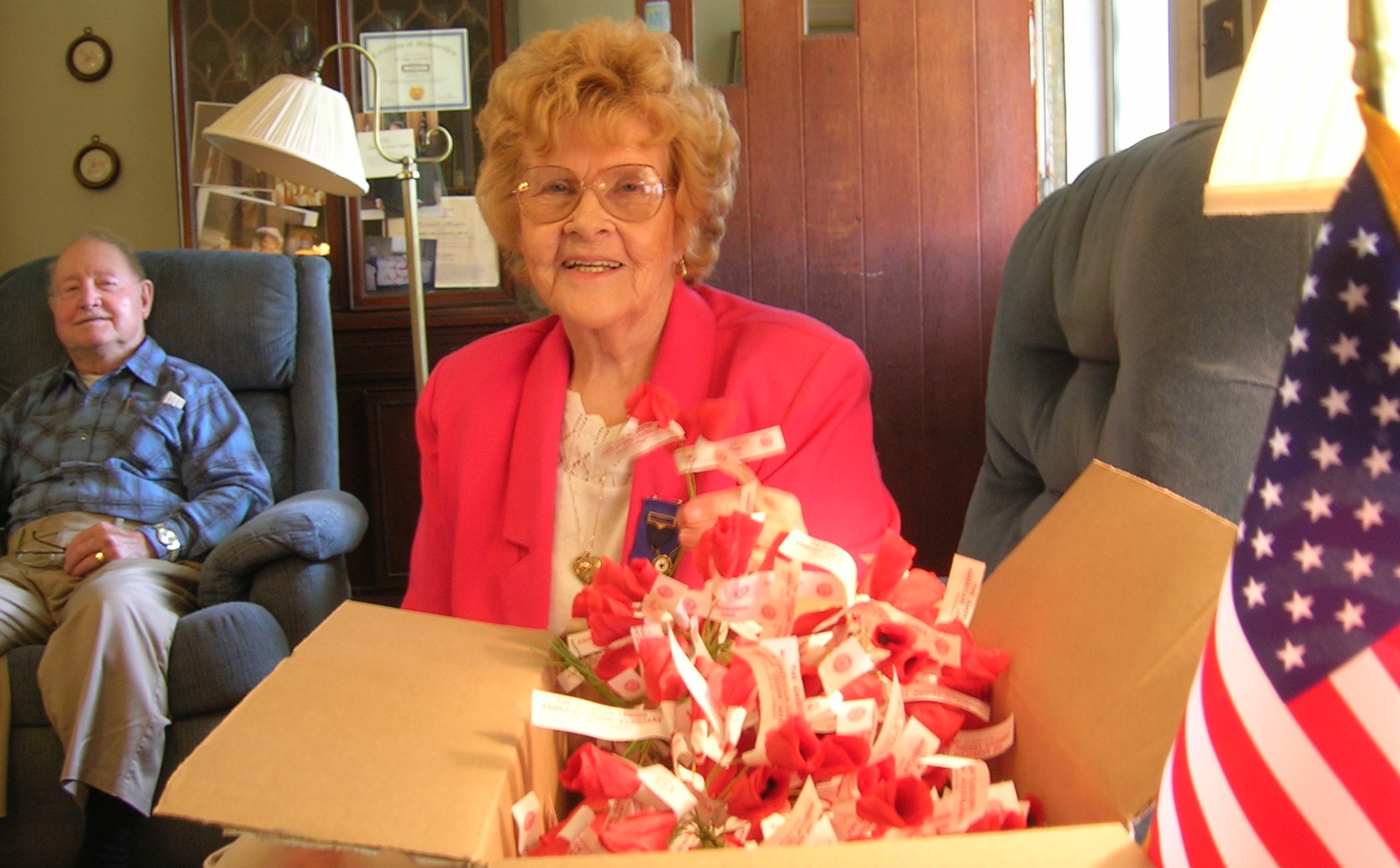 Hannah T. Schoolfield, right, and her husband, James, say the recognition of "Poppy Day" is important to keeping alive the memory of those who have given their lives in war. Mrs. Schoolfield, the American Legion Auxiliary Unit 66 president, and other auxiliary members on May 27 will hand out poppies on the courthouse square in Pikeville, Tenn.
Hannah T. Schoolfield, right, and her husband, James, say the recognition of "Poppy Day" is important to keeping alive the memory of those who have given their lives in war. Mrs. Schoolfield, the American Legion Auxiliary Unit 66 president, and other auxiliary members on May 27 will hand out poppies on the courthouse square in Pikeville, Tenn.ORIGINS OF POPPY DAY
The American Legion Auxiliary website describes how the poppy gained its place in Remembrance Days around the free world.Battle-weary World War I soldiers brought home memories of a barren landscape transformed by vivid, blood-red wild poppies that became a symbol of the sacrifice of lives in war and represented the hope that none had died in vain.The poppy as a memorial flower can be traced to one woman, Moina Michael, who was so moved by Canadian Lt. Col. John McCrae's poem, "In Flanders Fields," she wrote a response; "... the blood of heroes never dies/But lends a luster to the red/Of the flower that blooms above the dead/In Flanders Fields."In November 1918, Michael bought a bouquet of poppies and handed them out to businessmen meeting at the YMCA where she worked, asking them to wear the poppy as a tribute to the fallen. Later she launched a campaign that led to the adoption of the poppy as the national symbol of sacrifice.Source: The American Legion Auxiliary
As certain as the blooming of the poppies at Flanders Field in Belgium, the women of Pikeville, Tenn.'s American Legion Auxiliary Unit 66 will man their post at the corner of the Bledsoe County Courthouse Square on Friday.
Hannah T. Schoolfield and fellow members of the auxiliary have been carrying on the tradition of pinning red paper poppies on passers-by for Memorial Day over three decades, and this Friday they'll gather at the northwest corner of the courthouse lawn to dole out poppies again.
"This time we've got 250 poppies that will be pinned on people who pass by. We explain to them the significance of the poppy," said Schoolfield, whose sister, Sarah Poulson, and two brothers, James F. Robnett Jr. and John Robnett, served in World War II. The memorial flowers are handmade by veterans as part of their therapeutic rehabilitation and are distributed to people free, though donations are encouraged.
Poppy Day starts at 9 a.m. CDT and will continue until sometime after lunch.
The poppies symbolize the price of war and sacrifice and harken back to World War I and Canadian physician Lt. Col. John McCrae who penned the iconic poem, "In Flanders Fields," said Schoolfield, who says she is "in my 80s."
Schoolfield says pinning poppies on people has been a Pikeville tradition since she became a charter member of the auxiliary 30 years ago. Auxiliary members keep an empty seat at their poppy post to represent those missing in action or who are prisoners of war, she said.
Willie Grace McMillon Angel, 79, has been participating in Pikeville's Poppy Day for the past 10 years. Angel lost her brother, Harold McMillon, in World War II.
Angel hopes for lots of interested people Friday because they "need to know what poppy day stands for." She also grows bright red poppies at her home, because she thinks they're beautiful.
Schoolfield hopes the little paper flowers handed out Friday and throughout Memorial Day weekend are significant for the families of the almost 5,000 U.S. soldiers killed in action since 2001 as they have been for the families of war dead over the decades.
"The worst thing that can happen is to be forgotten," Schoolfield said, recalling McCrae's words, ..."If ye break faith with us who die/We shall not sleep."
"That's what it's all about," she said.